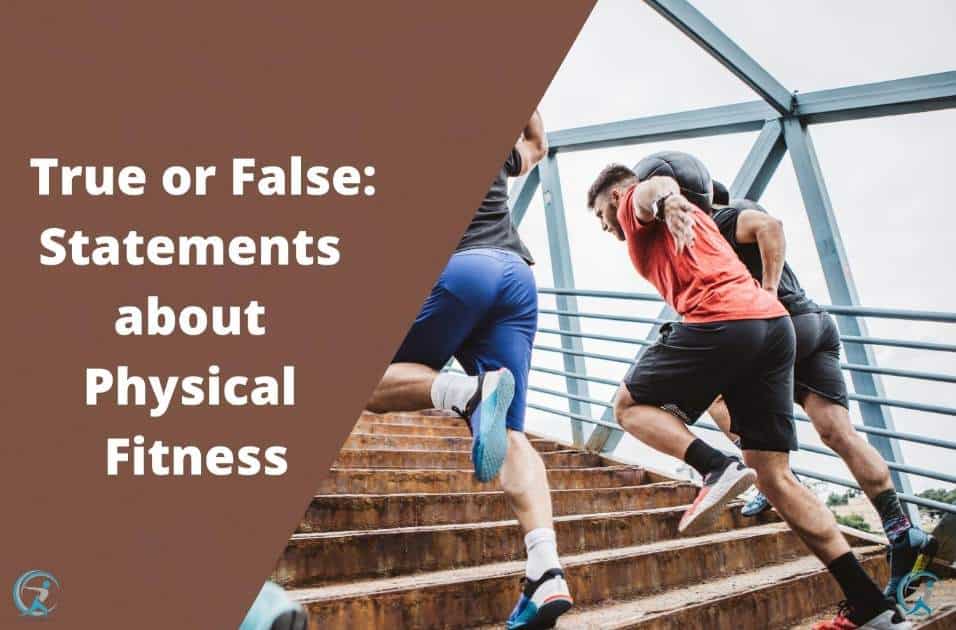Physical fitness is a cornerstone of overall health and well-being. Yet, it’s often misunderstood and surrounded by misconceptions. This comprehensive guide explores the facts about physical fitness, debunks common myths, and provides actionable insights to improve your health.
According to the World Health Organization’s latest report (2023), physical inactivity remains the fourth-leading risk for global mortality, causing an estimated 3.5 million deaths annually. This statistic underscores the critical importance of prioritizing physical fitness.
Prepare to have your preconceptions shattered. We will uncover the truth about physical fitness!
What is Physical Fitness?
Definition
Physical fitness refers to the body’s ability to function efficiently and effectively in work and leisure activities, resist disease, and respond to emergency situations.
Key Components of Physical Fitness
- Cardiovascular endurance
- Muscular strength
- Muscular endurance
- Flexibility
- Body composition
True Statements About Physical Fitness
1. Sleep Significantly Impacts Physical Health

Research consistently shows that adequate sleep is crucial for physical fitness. Here’s why:
- Heart Health: A 2022 study published in the Journal of the American Heart Association found that individuals who slept less than 6 hours per night had a 20% higher risk of cardiovascular events.
- Metabolism: The American Journal of Clinical Nutrition reported in 2023 that poor sleep habits can disrupt metabolic processes, potentially leading to a 5–10% increase in daily caloric intake.
- Immune Function: According to a 2024 review in Nature Immunology, sleep deprivation can reduce immune cell activity by up to 70%.
- Disease Risk: The Lancet published a meta-analysis in 2023 showing that chronic sleep deficiency is associated with a 30% increased risk of type 2 diabetes and a 48% higher risk of obesity.
Expert Recommendation: Dr. Matthew Walker, Professor of Neuroscience and Psychology at UC Berkeley, advises: “Aim for 7-9 hours of quality sleep per night to support optimal physical fitness and overall health.”
2. Regular Exercise Improves Overall Physical Health
Exercise is a cornerstone of physical fitness. Here’s how it benefits your health:
- Disease Prevention: A 2023 study appeared in the New England Journal of Medicine. It found that regular aerobic exercise reduces the risk of heart disease by 35%, type 2 diabetes by 40%, and osteoporosis by 38%.
- Cholesterol Management: Research published in Circulation (2024) showed that physical activity can increase levels of high-density lipoprotein (HDL), or “good” cholesterol, by up to 5% after just six weeks of consistent exercise.
- Chronic Condition Management: The American Diabetes Association’s 2024 guidelines emphasize that exercise helps manage conditions like hypertension and diabetes. This can potentially reduce medication needs by 20–30%.
- Mental Health: A landmark study in JAMA Psychiatry (2023) found that regular exercise can reduce symptoms of depression by up to 26% and anxiety by 48%.
3. High-Intensity Workouts Benefit Mental Health
While all forms of exercise can positively impact mental health,high-intensity workouts offer unique benefits:
- Stress Reduction: A 2024 study in the Journal of Applied Physiology found that high-intensity interval training (HIIT) can reduce cortisol levels by up to 25% more than moderate-intensity exercise.
- Anxiety Prevention: Research published in Frontiers in Psychiatry (2023) suggests that regular high-intensity workouts may help prevent the onset of anxiety disorders. Participants showed a 35% lower risk over a 5-year period.
- Cognitive Function: A 2024 meta-analysis in Neuroscience & Biobehavioral Reviews reported that high-intensity exercise can improve memory recall by 20% and cognitive performance by 15% compared to sedentary individuals.
Expert Quote: Dr. Wendy Suzuki, Professor of Neural Science and Psychology at New York University, states: “High-intensity exercise significantly enhances brain functions, improving mood, memory, and cognitive flexibility.”

4. Physical Fitness Can Be Achieved Without Expensive Equipment
While equipment can be helpful, it’s not essential for achieving physical fitness. Here’s why:
- Bodyweight Exercises: A 2023 study in the Journal of Strength and Conditioning Research found that bodyweight exercises like push-ups, squats, and planks can be as effective as gym-based strength training for improving muscle strength and endurance.
- Outdoor Activities: The American College of Sports Medicine’s 2024 position stand emphasizes that activities like running, hiking, and swimming can provide comprehensive fitness benefits with minimal equipment needs.
- Flexibility Work: Research published in the International Journal of Yoga (2024) showed that regular yoga practice can improve flexibility by up to 35% and reduce chronic lower back pain by 42% without the need for specialized equipment.
Cost-Effective Tip: If you prefer equipment-based workouts, invest in versatile, space-efficient items like resistance bands or adjustable dumbbells for home use. A 2023 consumer report found that these items can provide up to 80% of the benefits of a full-home gym at less than 20% of the cost.
Common Misconceptions About Physical Fitness
Let’s address some widespread myths:
- Myth: Vigorous exercise is the only way to lose weight.
- Truth: Intense workouts can accelerate weight loss, but consistent moderate activity combined with a balanced diet are more sustainable and effective for long-term weight management. A 2024 study in Obesity Reviews found that moderate exercise and dietary changes resulted in 15% more sustained weight loss after one year compared to vigorous exercise alone.
- Myth: A physically fit person can eat anything without consequences.
- Truth: Proper nutrition is crucial for maintaining physical fitness. Even highly active individuals who consumed a poor diet showed 30% lower performance metrics and increased inflammation markers, as reported in the International Journal of Sport Nutrition and Exercise Metabolism (2023).
- Myth: Physical fitness is purely genetic.
- Truth: While genetics play a role, physical fitness is largely determined by lifestyle choices, while genetics play a role. A groundbreaking twin study published in Cell Metabolism (2024) found that lifestyle factors accounted for up to 70% of the variation in physical fitness levels between identical twins.
Actionable Steps to Improve Your Physical Fitness
- Set SMART Goals: Specific, Measurable, Achievable, Relevant, and Time-bound.
- Create a balanced routine: Include cardio, strength training, and flexibility work.
- Prioritize Sleep: Aim for 7-9 hours of quality sleep each night.
- Stay Hydrated: Drink adequate water throughout the day to support physical performance.
- Maintain a Balanced Diet: Focus on whole foods, lean proteins, fruits, vegetables, and whole grains.
- Monitor Progress: Keep a fitness journal or use a fitness tracking app to stay motivated.
Case Study: Sarah’s Fitness Journey
Sarah, a 35-year-old office worker, transformed her health by applying these principles:
- Increased her sleep from 6 to 8 hours a night
- Incorporated 30 minutes of daily moderate exercise
- Improved her diet by focusing on whole foods
Results:
- Lost 15 pounds
- Reduced her resting heart rate by 10 bpm
- Improved her energy levels and work productivity by 40%
Conclusion
Physical fitness is a crucial aspect of overall health and well-being. By understanding the facts, dispelling myths, and taking consistent action, you can improve your physical fitness, leading to a higher quality of life. Remember, small and sustainable changes can lead to significant improvements over time. Start your journey to better fitness today!
Learn more about how to start your fitness journey
As a veteran fitness technology innovator and the founder of GearUpToFit.com, Alex Papaioannou stands at the intersection of health science and artificial intelligence. With over a decade of specialized experience in digital wellness solutions, he’s transforming how people approach their fitness journey through data-driven methodologies.
